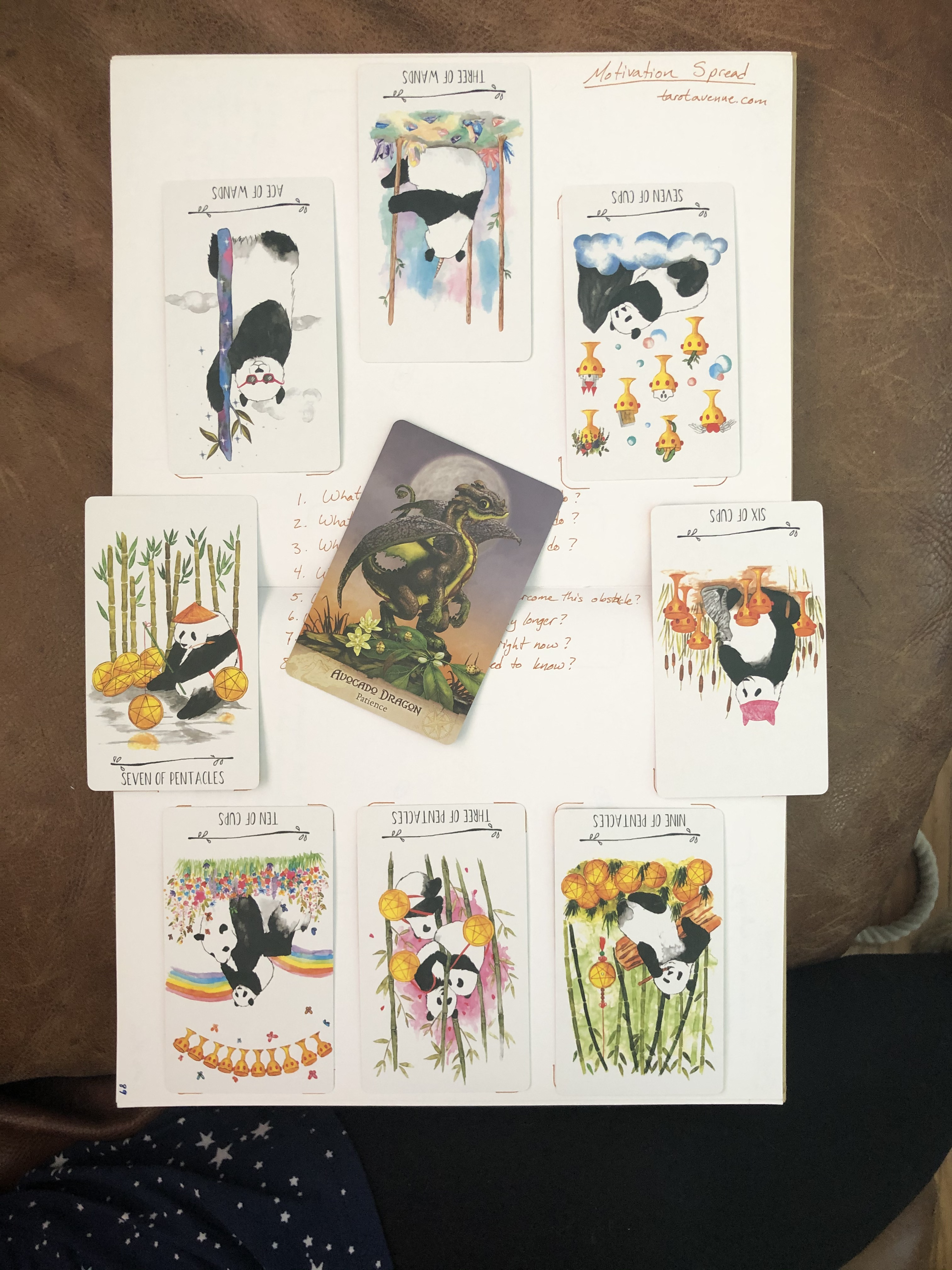The difference between tarot and storytelling is that tarot is done for or with a person who is seeking meaning out of the cards we’re reading.
When we’re telling stories it doesn’t matter how things connect or play out for a specific someone else, because we’re laying out a sequence of events and making meaning within a closed system.
Tarot seeks to either bring the querent (the person the reading is for) into that system, or to align the reading with the querent to add meaning to their situation.
How do we know if we found meaning – some connection to real life?
We ask questions, of ourselves (as readers) and of the querent(s).
In person – with a live reading face-to-face or via phone or video call – this sort of feedback is very natural and organic. I ask, “Does that resonate?” and the querent will let me know if that angle on the cards lines up with their situation.
Email or other distance readings (where the reader and querent are not face-to-face) cannot hold the same immediacy, but can still have value.
As I’ve expanded my practice into written readings, I ask follow-up questions of those I read for. I encourage anyone who reads for others to consider how questions such as these can both enrich your services, and provide confirmation of your instincts – which is a tremendous confidence-boost and can help a reader remember they’re not just shooting words into the void, they are touching lives.
This is my list of questions, and you are welcome to use them if you like to build your own form on Google to collect whatever answers people are willing to share. (This is how the form looks. Not everything is fill-in-the-blank.)
- Name (so I can connect feedback to the reading)
- What was your first impression of the reading?
- How did the reading make you feel? Did you connect with the words I used and/or the content?
- What did I get right or wrong?
- What parts of the reading resonate with you, and how?
- Did the level of detail work for you?
- Did you follow/understand the way I interpreted the cards?
- Did that make a difference for you in terms of how “good” or effective the reading was for you?
- Any suggestions about what would have made the reading easier to follow?
- May I use your comments in my promotional materials (website, social media, fliers)?
Not all of these questions are useful to all readers (or querents) and in general shorter forms are better.
~ ~ ~
As I promised last time, here are some of the querent’s responses to the panda reading I gave her.
Not every form is filled out in such detail, but I have found it’s often beneficial for querents to journal about the readings they receive, and sometimes feedback like this can be a form of processing or integrating.
~
What was your first impression of the reading?
Very professional, and well organized.
How did the reading make you feel? Did you connect with the words I used and/or the content?
Yes. There were definitely some things that I didn’t really want to hear, and I felt that some of the more difficult messages were conveyed in a very compassionate and matter of fact way. It made it easier to both take in and to process. I liked the term “champagne problem” in reference to all the shiny and effervescent options. You were also spot on with the 6 Cups R interpretation. The only word that I probably would have changed may have been “child like” rather than “childish”.
What did I get right or wrong?
First of all, I laughed out loud with all the reversal cards. That seems to be all I pull for myself these days, so spot on with that! The call for patience with the dragon card is honestly not new advice – I just don’t seem to process it like I should. Also, I know it would be really helpful to choose the “one” thing – I might need to pull some cards myself to figure out what that one thing should be :). Or just do some journaling.
Any suggestions about what would have made the reading easier to follow?
Not really – I felt it was laid out in a way that built one upon the other, and that made it into a narrative that was easy to follow.
~
Loved how this querent pointed out the difference between “childish” and “child like.” It’s a valuable distinction. And it is always affirming to hear how someone connects my work to their own practice.
~
To conclude –
For readers, ask for feedback whenever you can, wherever it fits. It will make you a stronger reader.
For the querents, thank you always for your emotional energy and the effort you make to put your feelings and responses into words. It makes us stronger readers for you.
Cheers!
